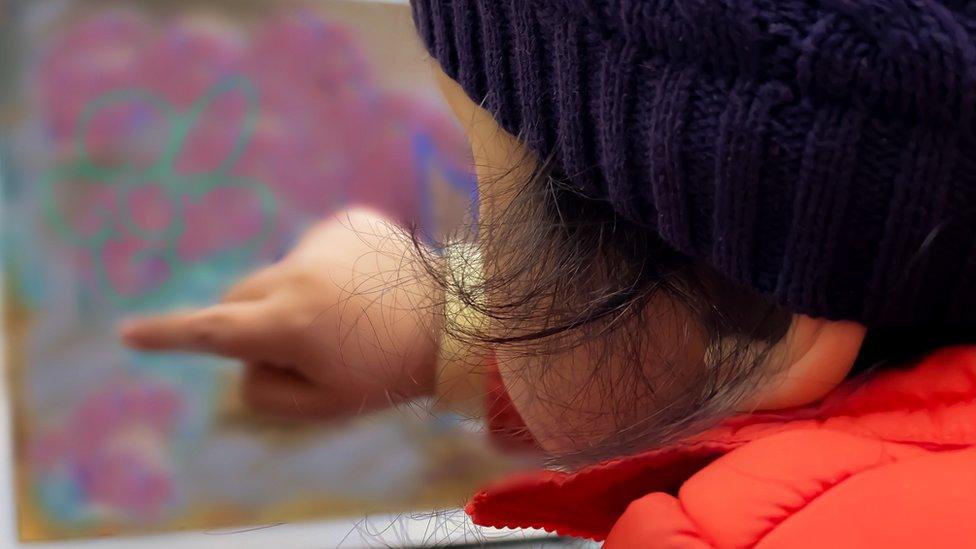Young carers' mental health 'deteriorating' in lockdown, says charity
- Published
Support groups "make me feel less lonely", says nine-year-old Kieran
Young carer services need "sustainable funding" and prioritisation for the safe re-opening of face-to-face support, according to a charity.
Carers Trust Wales said it needs to be able to plan what support it could offer after lockdown, to help deal with the "increasing isolation".
For young carers such as nine-year-old Kieran, those services have helped build confidence and make friends.
The Welsh Government said more funding has gone towards supporting carers.
It added: "We encourage young carers to contact their local authority to get the help and support they are entitled to."
Wales Live asked all local councils in Wales what they were doing to support young carers during the pandemic.
Of the 17 that responded, 14 said they were now offering support services either online or over the phone, with four saying the need for additional support had increased over the past months.
There were 7,544 young carers under the age of 16 in Wales, according to the last census in 2011, although Carers Trust Wales said this figure is now likely to be far higher following the start of the pandemic.
The charity said resuming face-to-face support must be prioritised because the wellbeing and mental health of young carers have deteriorated, with the respite of schools now taken away.
It said: "We really need to find ways of creating the space for them to get a break, to get the time that they need to be themselves and to actually be children at this really difficult time and to think about how those services are planned."
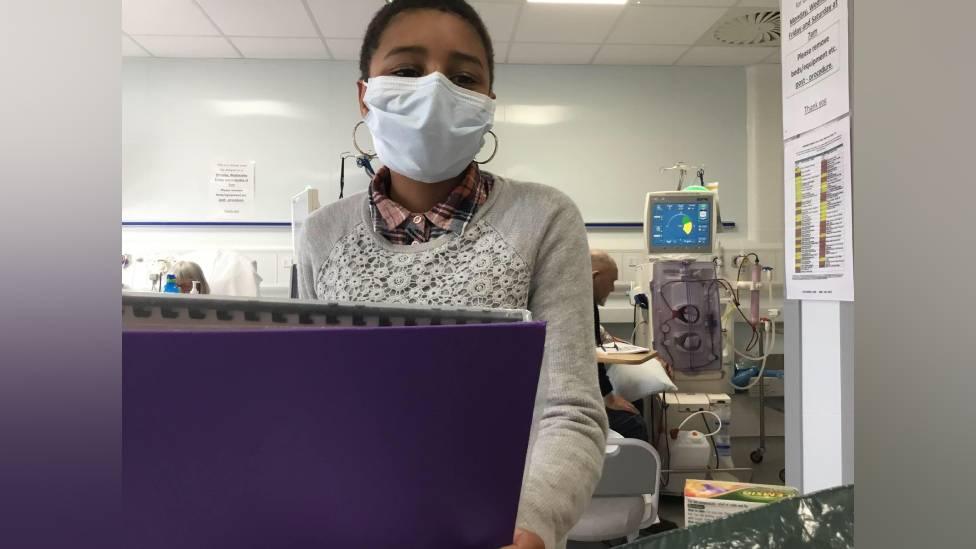
Chloe, 13, asked to be trained to help use the dialysis machine so she can support her mother
'I wanted to hang out with friends'
Chloe, 13, is one of those children balancing home-schooling with being a young carer, even helping with daily dialysis sessions for her mother Becky, who has kidney failure as well as other health conditions.
Chloe asked to be trained to help use the dialysis machine so she can support her mother during the four-hour-long sessions, although admits it's sometimes a rush between schoolwork and helping out at home.
The coronavirus pandemic has been even more 'tiring' because of the extra worry of her mother becoming unwell with the virus.
Chloe and her family have been shielding since March last year.
"At first it was quite scary because, as the lockdown was easing a bit, you could see friends going out and hanging out with each other, but that wasn't an option for me," said Chloe.
"And in this lockdown it's the same. It's a bit sad because I wanted to be one of them people that hangs out with their friends."
While enjoying extra time with her parents, Chloe misses the young carers groups she attended each week before the pandemic. Now all her interaction with other young carers happens entirely online.
"It was hanging out with people who know what you're going through," she said.
"So you have a place where you can relax and not have to worry about people asking a bunch of questions. It was where you could just be normal and not have to worry."
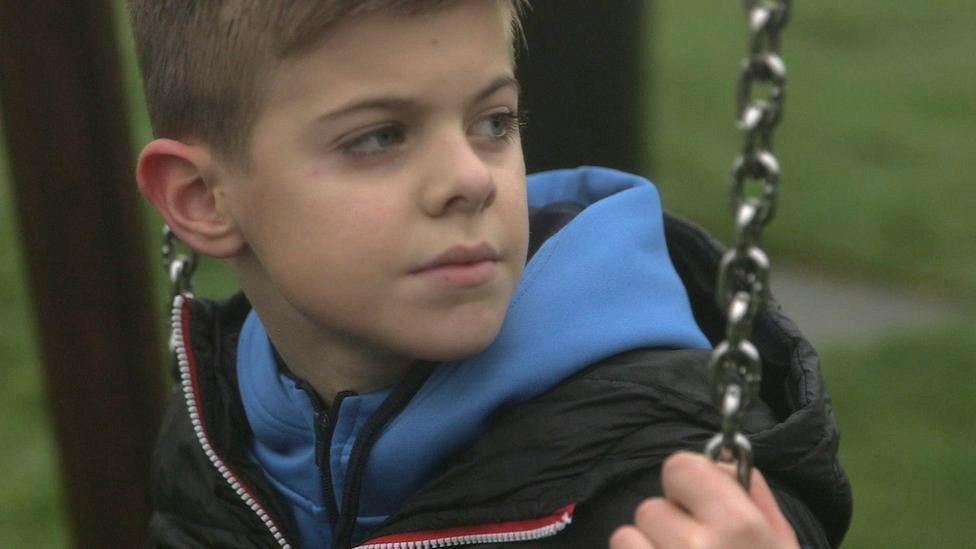
Kieran's sister Tegan has Joubert's syndrome, which means she can struggle with communication and mobility
'I stress a lot at home'
Also relying on online support is nine-year-old Kieran, who is a young carer for his 11-year-old sister Tegan.
Tegan has Joubert's syndrome, external, a rare condition which means she can struggle with communication and mobility.
While she is becoming more independent as she gets older, Kieran is sometimes more of an older brother than a younger brother and helps with things like getting dressed and ready for the day.
He said the past 10 months have made him feel lonely.
"I am missing going to school because I stress a lot at home and I miss seeing my friends."
As well as going to school, Kieran said meeting other young carers through organised trips and activities helped him build his confidence and make new friends. That was until lockdown.
Simon Hatch, director of Carers Trust Wales said lockdown and extra responsibilities were "adding real pressure" to young carers.
"They are giving us information about feeling frustrated, more isolated and lonely, particularly [at] not being able to engage with the services," he said.
"For many young carers, schools and being able to be at school with their friends is one of the only forms of respite they get, so you can imagine how much more difficult things are now."
The Welsh Government thanked young carers for the "remarkable support" they are providing during the pandemic.
"We are working with Carers Trust Wales to understand further the pressures young carers are facing and ensure they get support they need," added a spokesperson.
"We have also provided additional funding for mental health services and to support carers during this incredibly difficult time."
You can see more on this story on Wales Live on BBC One Wales on Tuesday 19 January at 22:35.
- Published20 May 2020
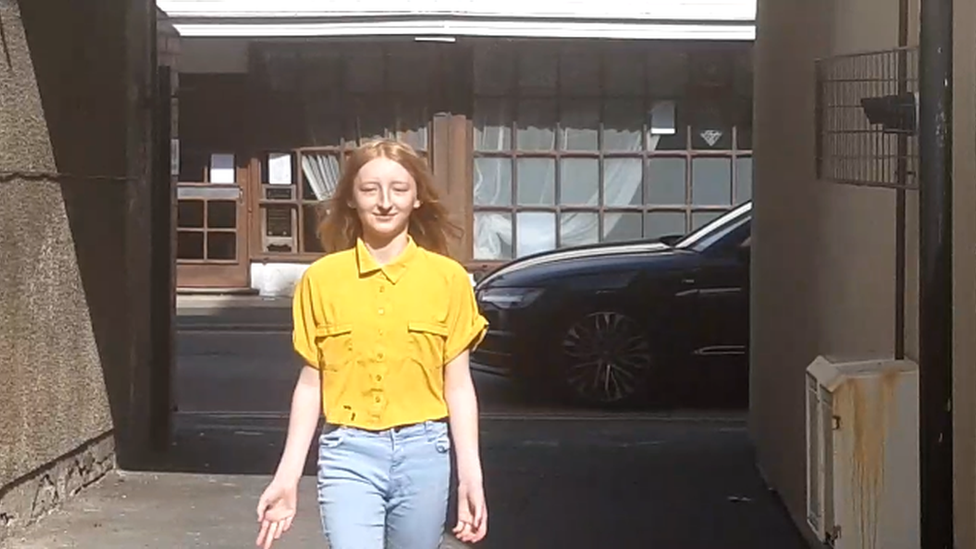
- Published10 June 2020
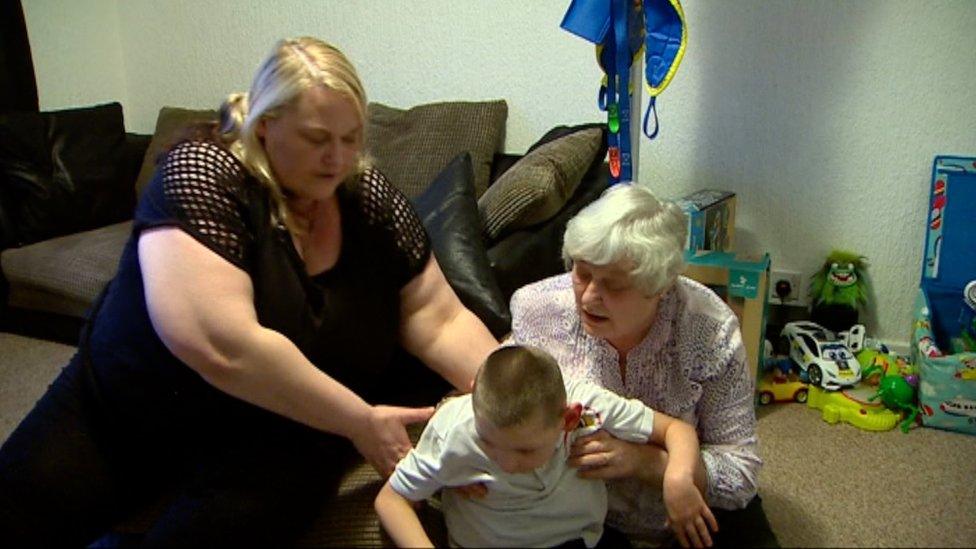
- Published1 November 2020
